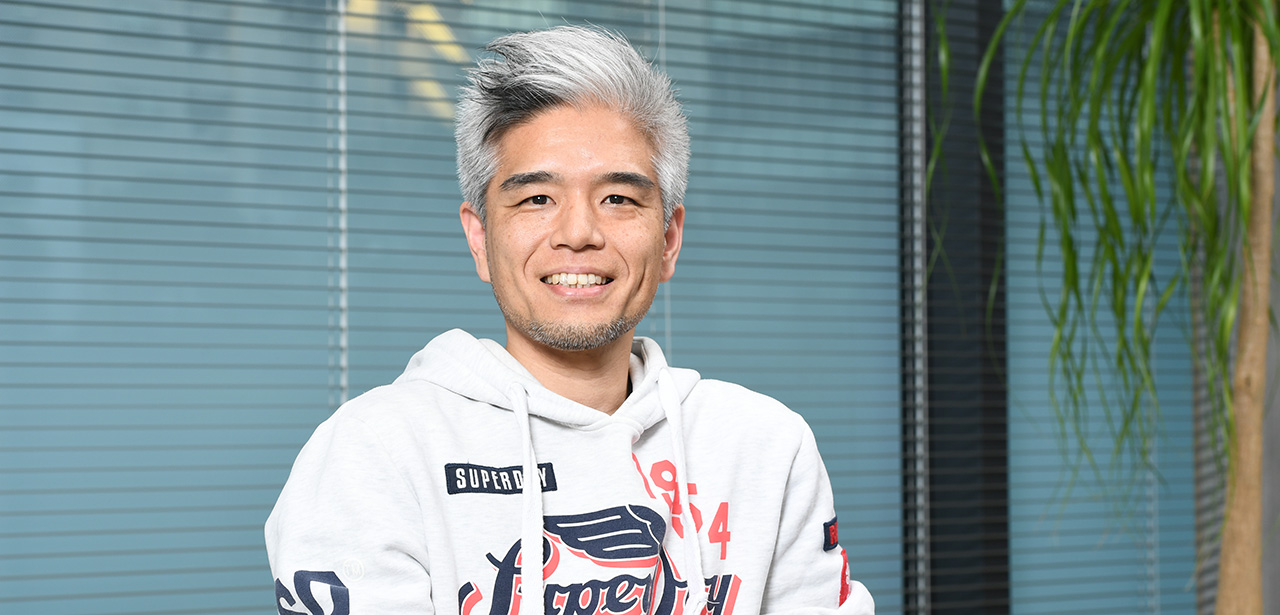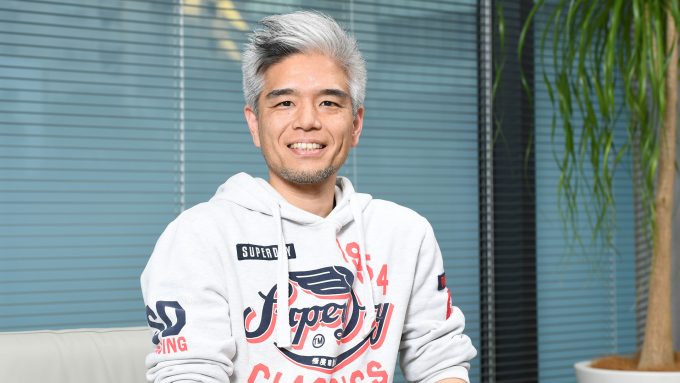WE GREW VANA’DIEL is a series of interviews with those who were involved in the development of FINAL FANTASY XI (FFXI), as well as guests from other companies. In this installment, we sat down with Toshio Murouchi, a former Game Master (GM) for FFXI and now Global Community Producer since 2006. In this second part, Mr. Murouchi talked about how FFXI GMs went about handling various services and addressing issues.

General Manager of Square Enix’s Community & Service Division and Global Community Producer for FFXIV. He initially transferred to Square (now Square Enix) from the Japanese GM team for Ultima Online* along with former FFXI Global Online Producer Sage Sundi. Together, they established an online game management team for FFXI from the ground up. Following his roles in FFXI as European Online Producer and Global Community Producer, Mr. Murouchi now oversees Square Enix’s customer service as General Manager of the Community & Service Division.
* Ultima Online is an MMORPG released in 1997 widely considered to be a pioneer of the genre.Mysterious outsiders in Vana’diel
GMs have quite the striking look with their red armor and aura. Was their appearance decided before launch?
- Murouchi
Yes, the FFXI development team kindly provided us with a full set of armor, which Mr. Sundi requested to be painted red. I believe that choice of color was based on the red robes that GMs wore in Ultima Online, and the idea was to give our GMs a uniform appearance that couldn’t be replicated by players. Furthermore, we set them apart from normal characters by shunning their humanlike qualities, since we considered them to be mysterious outsiders in Vana’diel who only show up to help players in need. Thus, our ideas resulted in a full-face helm which concealed facial expressions, with the whole set dyed red as requested, as well as an ominous aura emanating from the character. We also had a rule in the beginning that all GM characters had to be Humes.
When it comes to speaking with players, it seemed like there were some cases where GMs made themselves visible and others where they remained invisible during the conversation. Was there some kind of rule to determine whether a GM should show themselves or not?
- Murouchi
We refrained from showing ourselves as much as possible when it wasn’t necessary. In other words, it was fine for us to make ourselves visible unless it wasn’t allowed, but that would’ve drawn a lot of attention… It would’ve been a problem if it drew a crowd of players going, “Hey, I’ve never seen a GM before!”
* The Mordion Gaol is a special area in FFXI set aside for GMs to speak with players.
Cases that called for GMs to speak with players often only involved one or two individuals, and any that could be resolved with one-on-one conversations were often conducted via /tell. If we really needed to speak with someone face-to-face, we transferred them to the Mordion Gaol* and had our conversation there. Since GMs were a rare sight for players, they were the subject of many urban legends, like the one about a GM who was supposedly caught in a monster’s area attack and KO’d.
- Murouchi
There certainly were. (laughs) For the most part, our characters couldn’t interact with the rest of the world and weren’t able to do much other than stand around ominously.
For many players, FFXI was their first online game. Did you find them any different compared to Ultima Online players in that regard?
- Murouchi
I never thought they were all that different, though it’s worth mentioning that as a GM, I only ever interacted with people who needed help. Their reactions and feedback were pretty much the same from what I saw from players in Ultima Online.
So the players in both games weren’t all that different, at least in terms of those who needed in-game assistance.
- Murouchi
Yes, I’d say so. Back then, a PlayStation BB Unit was required to play, and the majority of players were still unfamiliar with online games in general, so many of the inquiries we received were regarding the internet, accounts, and passwords. Most were predicaments like that, so in comparison, the in-game situation was relatively peaceful.
Plans for an official BBS in 2002
Could you tell us more about your specific duties when FFXI originally launched?
- Murouchi
When I joined, Square didn’t have a customer service infrastructure for online games, so we started from establishing three shifts and a support policy in order to provide 24-hour customer support.
Sometime just before launch, we started thinking about what we should arrange for the player community. It might be harder for our younger audiences to imagine, but back then, we didn’t have social media or aggregator websites. Instead, some people took it upon themselves to spread information on their personal home pages, so they’d connect to the internet and make their way around a predetermined selection of websites—that’s the kind of era it was. Now that always-on connections are the norm, the phrase "connected to the internet" sounds a bit outdated, doesn’t it? (laughs) Indeed, it was an era where people had to proactively retrieve information for themselves.
- Murouchi
With that in mind, we wondered how we might bring together all the people who were spreading FFXI-related information, and even thought of creating a collection of fan site links on our official website.
* Bulletin board systems (BBS) are computerized systems which were often used to exchange messages and files on the internet prior to the advent of social media.
Separately, since FFXI was Square's first full-scale online service at the time, we received an in-company request to document and organize a service policy that could be used in subsequent games and services. Also, when I was looking over the documents from back then to prepare for this interview, I discovered that we had plans for an official BBS* back in 2002. The player community would’ve turned out quite differently if that had come to pass.
- Murouchi
There were also plans to have a BBS on PlayOnline Viewer, but as we all know, that never saw the light of day. We didn’t have anyone who had experience in dealing with opinions expressed in a public official forum, and on top of that, it required more than just the FFXI team to determine our course of action if other numbered titles and IPs were to come up in discussions. These and other anticipated issues led us to refrain from going that far in an official capacity and decide against implementation.
That may have been the right decision at the time.
- Murouchi
I don’t mean to keep going on about abandoned projects, but back in 2002, there was talk of creating a space where players could write journal entries and spread information. It was envisioned to be like a rental space for individual players where they could publish something like a blog. That idea was also in discussion, but they were restricted by having to do everything on PlayOnline and other limitations, which proved too difficult and didn’t come to fruition.
The plan was realized about 10 years later with the Lodestone, the official players’ site for FFXIV.
- Murouchi
That’s right. As such, I’d say that in many ways, PlayOnline was thinking very far ahead.
Speaking of official website content, were you involved in the Vana'diel Tribune?
- Murouchi
The team I was in charge of included the “Tribune team” who were responsible for everything from writing articles to creating page layouts. Back then, we were actively considering how to enable players to get involved, such as a community initiative to certify players as “Tribune correspondents.”
The Vana'diel Tribune was meant to be a guide for players to learn more about the world, but I found it refreshing how it also had aspects that allowed players to become part of the game’s context.
- Murouchi
It certainly might’ve seemed like an innovative idea back then. On the other hand, all of these initiatives were done manually, and we were starting to see a limit with what events could be held. FFXI was too immense for our limitations, and we had numerous ideas we wanted to do but couldn’t.
As such, we shifted our focus to how the components necessary for our community initiatives could be automated or integrated as an in-game system.
Handling support for weddings manually
FFXI not only had official events but player-initiated events as well. Were there any that you found memorable?
- Murouchi
We were eager to have more and more player-initiated events, so we were working to support them in any way we could. To that end, we had the development team prepare Moogles that could be used as signs and other decorations. However, these were also done by hand, so we were unable to handle a large number of events. Wedding Support* was originally done in person, so we had to confirm applications by email, make arrangements, place the objects in-game, etc. and we simply couldn’t keep up.
* Wedding Support is an in-game wedding service which began in November 2002. As of November 2009, NPCs handle the process of selling the necessary items and issuing marriage certificates, and players are able to choose the venue and proceedings of the ceremony. That sounds just like preparing for a real-life wedding.
- Murouchi
It certainly was.
From there, we gradually changed gears to automate certain aspects, like the application and lottery or having NPCs stand in for the ceremony. At the same time, many players who knew Wedding Support’s origins were saddened that they’d no longer be able to experience the weddings that were officiated by GMs. Although I definitely understood how they felt, we wouldn’t have been able to keep up with the old way, and players would’ve been waiting indefinitely for their turn to hold a ceremony. It was a tough situation and I really wish we could’ve done something about it, but it also taught me a great deal about supporting a larger player community. By the way, how many GMs were there at the time?
- Murouchi
Only counting the GMs in Japan, there were about 15-20 people in the beginning. The number of GMs has gradually increased since then.
Incidentally, the main purpose of the GM team at the time was to provide in-game support for FFXI, but they were also responsible for what we call the “Network Operations Center” (NOC), where they were the first to notice any failures or issues and notify all parties concerned. Now that being online has become the norm, there’s been an increasing need for NOC features, and their responsibilities have expanded tremendously. They are now a team that monitors an enormous number of titles and services. That sounds as equally important as providing in-game support as a GM.
- Murouchi
Neither of those infrastructure existed at Square prior to that, and they were gradually established in conjunction with FFXI’s operations, which eventually led to the team we have today.
* Part 3 will be available on November 23, 2022.




